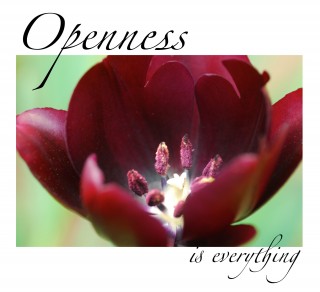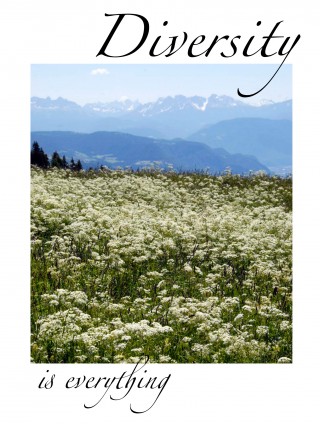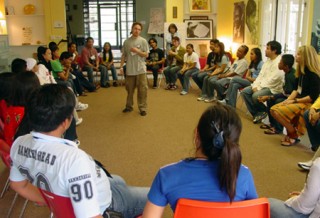As someone new to teaching, it was time for me to read a book that I have heard about for years, The Courage to Teach, by Parker Palmer. What struck me most from this book was Palmer’s description of creating a space or atmosphere in the classroom (or space) for what he calls a community of truth. This concept can also be applied to other communities we are a part of.
The hallmark of a community of truth is in its claim that reality is a web of communal relationships, and we can know reality only by being in community with it. ~ Parker Palmer, The Courage to Teach
We know that all of nature is highly interconnected and interdependent. Parker says that biology confirms that life, while it includes struggle and death, advances through collaboration.
What is truth?
Truth is an eternal conversation about things that matter, conducted with passion and discipline. Truth is the process of inquiry and dialogue itself, that keeps testing old conclusions and coming up with new ones. It is commitment to the conversation. ~ Parker Palmer, The Courage to Teach
Have you ever thought of truth in this way – as the conversation itself? What if we were to bring this idea to all of our discussions?
 Openness is the first step in creating a community of truth – making space for others and treating them with respect and honour.
Openness is the first step in creating a community of truth – making space for others and treating them with respect and honour.
Openness is being comfortable with silence and not attached to our own agenda.
It brings empathy to the table.
It is being willing to change our minds or expand our perspective.
Palmer explains that we need to see the other as a subject, available for relationship, rather than as an object, to be used or to compete against.
A community of truth invites conflict, with the intention that everyone can win at some level.
Palmer’s third way of seeing is that, rather than absolutism (knowing the full reality of things) and relativism (claiming that things have no reality, except what we know), there is a way of infinite possibilities.
The leading edge (where truth resides) is where absolutely all the action is. The leading edge contains all the infinite possibilities of the future. It contains all the history of the past. ~ Robert Pirsig, Zen and the Art of Motorcycle Maintenance
 Once a space of openness is created, a community of truth is characterized by:
Once a space of openness is created, a community of truth is characterized by:
* a diversity of viewpoints
* ambiguity
* creative conflict
* honesty
* humility
All people want to be seen and heard and recognized as having value.
Nobody wants to be fixed.
Teaching and listening in a community of truth is less about imparting information and more about bringing out the subject’s inner teacher.
Palmer has experienced real communities of truth and he has utterly failed at times also. Developing these types of communities or bringing this mindset into relationships is not easy, as our egos often get in the way.
I can think of all kinds of places where communities of truth are needed – classrooms, families, workplaces and the political process.
How and where do we start?
We start with ourselves – noticing what we bring to every conversation or relationship. What energy do we bring to the space? Are we open to different views? Can we listen deeply and with respect? Can we try not to fix?
We’ve all experienced times when the conversation is shut down quickly with a cutting remark or a failure to listen. For those who teach, and anyone interested in our education system or how to communicate constructively, I would highly recommend this thoughtful book.
Have you experienced a community of truth?
** Books mentioned have Amazon affiliate links, meaning I make a few cents if you purchase through my link. I only recommend books that I’ve read.
Read: The Courage to Teach by Parker Palmer

Hello Kim. It was such a pleasant surprise to stumble upon this post today. Just this morning this book came across my radar again. I’ve heard of it before, but haven’t yet read it. I definitely want to check it out. Thanks for sharing some of the insight you gained from reading this. I very much like the idea of a community of truth.
That’s an interesting coincidence. Thanks for stopping by. It’s a great book.
Delighted to read this and actually all of your blogs. I too am inspired by Parker Palmer and this post reminds me of MLK’s “beloved community.” I think they are one and the same. Your work has become part of my morning blessing. Thank you precious light.